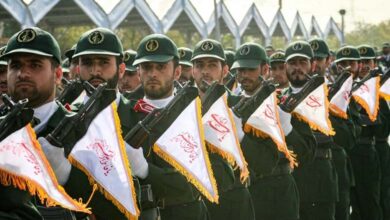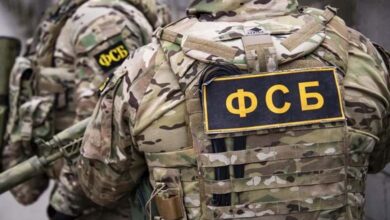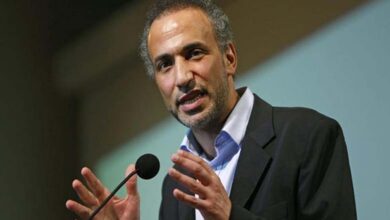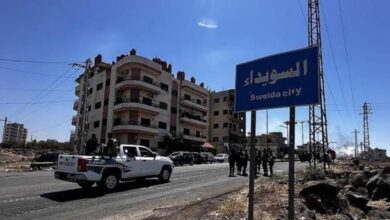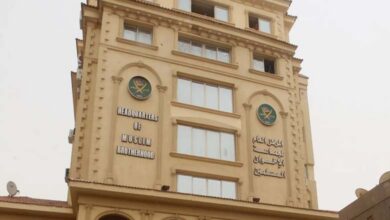Reverse Migration from Lebanon Amid Israeli Escalation
More than 22,000 people, mostly Syrians, have crossed the border from Lebanon to Syria since the beginning of the week.
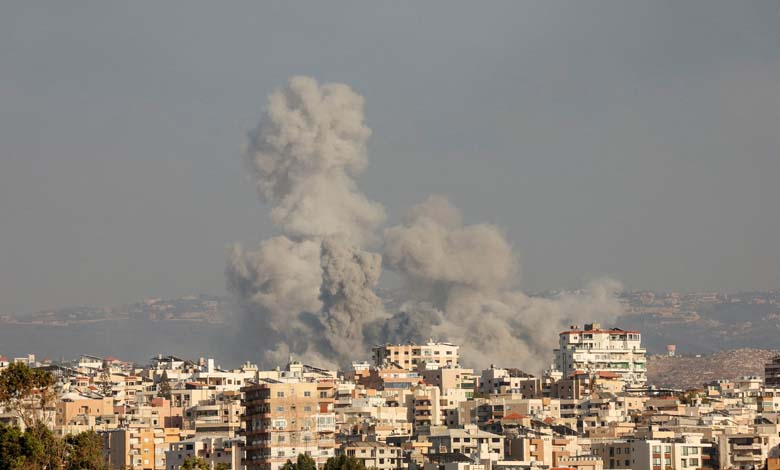
The relentless airstrikes launched by Israel on Lebanon have forced thousands to flee to Syria, creating a reverse migration from a country that hosts nearly two million Syrian refugees and has long exerted international pressure to return them to their homeland, especially as it faces one of its worst financial and economic crises.
-
Israel Considers Ceasefire with Hezbollah While Continuing Escalation
-
Can Hezbollah stand up to Israel? Iranian President expresses doubts
A security source reported that more than 22,000 people, the majority of whom are Syrians, have crossed the border from Lebanon to Syria since the beginning of the week amid heavy Israeli bombardments.
Another source stated that “more than six thousand Lebanese and about 15,000 Syrians entered through the Jdeidat Yabous crossing on an emergency basis over the past three days until Thursday morning.”
-
Israel Urges Lebanese Citizens to Immediately Move Away from Hezbollah Sites
-
The “gouged eyes” could have been avoided… Here’s what Hezbollah overlooked
Jdeidat Yabous is the main crossing between the two countries, known on the Lebanese side as “Masna.” A Syrian security source confirmed that “around a thousand Lebanese and approximately 500 other Syrians have entered through the Jousiyeh crossing” from the Lebanese side since Monday.
Lebanese authorities, in a country with a population of over four million, claim that the country hosts approximately two million Syrians, of whom less than 800,000 are registered with the United Nations. The majority arrived after the outbreak of the Syrian conflict in 2011. The total number of refugees is the highest for any country in the world relative to its population.
-
Did Mossad Rig Hezbollah’s Communication Devices in Taiwan?
-
The “Empire” of Smuggling and Gold: Why Lebanon Grows Poorer While Hezbollah Becomes Wealthier
The Lebanese Ministry of Health announced on Thursday that 19 Syrians were among the 20 people killed in an Israeli strike targeting the town of Younine in eastern Lebanon, where several areas were subjected to heavy bombardment on Wednesday night into Thursday, while the Israeli army stated it had struck Hezbollah targets.
The United Nations High Commissioner for Refugees reported that at least 87 Syrians, including 35 men, 16 women, and 36 children, had been killed in the recent escalation between Hezbollah and Israel in Lebanon, noting that this toll does not include the casualties from the Younine strike on Thursday.
-
Geagea attacks Hezbollah: Dragging Lebanon into an “absurd war” that did not benefit Gaza
-
Hezbollah’s Response to Chokr’s Assassination Eased Tensions
It clarified that at least 338 Syrians have been injured, including 126 children, and estimated that the toll may rise due to the ongoing strikes in the Beqaa region bordering Syria, where a large number of Syrian refugees fleeing conflict in their country reside.
In this context, NGOs have launched a campaign to collect emergency aid to support the tens of thousands displaced due to the Israeli airstrikes on Lebanon, calling for an immediate ceasefire and ensuring access to humanitarian assistance.
-
Washington Post reveals how Lebanese pay the price for Iranian threats and ongoing Hezbollah-Israel clashes
-
Can Israel Deter Hezbollah? Dark Scenarios for a Potential Confrontation
Among these NGOs, “Care” stated in a statement: “With the escalation of violence, Care calls for an immediate ceasefire and launches a humanitarian response to assist the affected populations who have been forced to flee.”
Michael Adams, the national director of “Care – Lebanon,” stated in a statement: “The situation is extremely tense here in Lebanon. All roads leading to Beirut from the south and from the Beqaa plain (to the east) are crowded with people trying to escape the bombardments, leaving everything behind,” adding that “residents have been living in fear for weeks, as the country undergoes a massive economic crisis.”
-
12 Hours of Chaos in Israel “Saved” Hezbollah from a Potential Strike
-
Israel avoids total war in response to Hezbollah
For its part, “Oxfam” has issued a call to collect assistance for the displaced “by providing them with potable water, sanitation facilities, emergency funds, food, and hygiene products.”
Jeremie Mourin, head of donations at Oxfam – France, said in a statement: “The ties between France and Lebanon have always been significant, and in such a dangerous situation, we hope that solidarity will be forthcoming.”
Similarly, some organizations like “Le Secours” support local partners. After granting an initial aid of 50,000 euros, the NGO announced that it would allocate 100,000 euros from its emergency fund to assist displaced individuals housed in schools, providing mattresses, blankets, ready-to-eat meals, generators, and psychological support.
-
Hezbollah Focuses on Targeting Israeli Gas Fields
-
Hezbollah Conceals Its Losses with Promotional Displays of the ‘Hudhud’ Drone
Meanwhile, the organization “SOS Chrétiens d’Orient” has launched a call for donations to help the displaced and has warned of “the humanitarian crisis affecting southern Lebanon,” urging “the international community to act for an immediate cessation of hostilities.”
Additionally, 45 injured Lebanese individuals, including children and women, were transferred today to a hospital affiliated with the Al-Abbas Foundation in Karbala.
The Al-Abbas Foundation stated on its website that the injured “arrived by air at Baghdad International Airport.”
-
Know Hezbollah’s “Primitive” Tactics in Confronting Israeli Technology
-
Violent Clashes Between Hezbollah and Israel Amid Preparations for Total War in Southern Lebanon
It noted that all its hospitals “were on alert to receive” the injured coming from Lebanon, indicating that it expects to receive more “in implementation of the supreme religious authority’s declaration to provide assistance to the Lebanese people.”
The grand Shiite ayatollah of Iraq, Ali al-Sistani, called on Monday for “all possible efforts to stop the aggression” against Lebanon, urging “believers to do everything in their power to relieve the suffering” of the Lebanese “and ensure their humanitarian needs.”
The Al-Abbas Foundation announced on Tuesday the formation of a “Supreme Commission to Rescue the Lebanese People” and its “readiness to host the displaced families of the Lebanese people.”
-
Israel and Hezbollah: Is Confrontation Inevitable?
-
Leaks from the Secret Meeting: Iran Refuses to Support Hezbollah and its Iraqi Militias Against Israel
Iraqi authorities maintain close ties with Lebanon and Hezbollah, an ally of Tehran, and Prime Minister Mohamed Shia al-Sudani stated on Monday from New York that his country would establish “the organization of efforts and the transport of aid in response to Sistani’s call” “through an air and land bridge and facilitate the sending of fuel to operate the necessary power plants for Lebanese hospitals and service establishments,” affirming that his country is “ready to host the injured and sick in its hospitals.”




